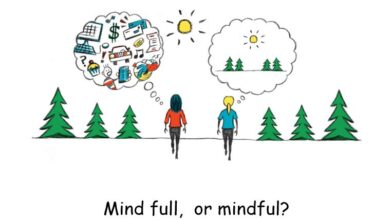Confidence and Empowerment: The Beauty of Self- Assurance

Confidence and empowerment are two of the most powerful tools for personal growth and success. Together, they form the foundation for living a fulfilling, authentic, and purpose-driven life. When you feel confident and empowered, you’re better able to pursue your goals, stand up for yourself, and handle life’s challenges with resilience and grace.
However, confidence doesn’t always come naturally, and empowerment is something that often needs to be nurtured. In this blog, we’ll explore what confidence and empowerment really mean, the barriers that can get in the way, and how you can cultivate these traits to take charge of your life.
What is Confidence?
At its core, confidence is the belief in your own abilities and value. It’s the sense of trust you have in yourself to handle whatever life throws your way, whether that’s a new job, a big presentation, or even day-to-day decisions. Confidence allows you to take risks, embrace challenges, and step outside of your comfort zone.
Confidence doesn’t mean that you never experience fear or doubt. Instead, it’s about pushing through those feelings because you trust yourself to cope with the outcome. It’s knowing that even if things don’t go as planned, you have the inner strength and resourcefulness to adapt.
What is Empowerment?
Empowerment, on the other hand, goes a step further. It’s about owning your personal power and recognizing that you have the ability to shape your own life. Empowerment means taking control of your destiny, standing up for your values, and making choices that align with your true self.
When you feel empowered, you believe that your actions have a meaningful impact, both on your own life and on the world around you. It’s about breaking free from limiting beliefs, external pressures, and societal norms that can hold you back.
Empowerment isn’t just about individual achievement—it’s also about supporting others. When we lift each other up and create a more inclusive, just world, we empower entire communities.
Related Post
Common Barriers to Confidence and Empowerment
While many of us want to feel confident and empowered, there are common barriers that can get in the way. Here are a few of the most common challenges people face when trying to build confidence and embrace their personal power:
1. Fear of Failure
One of the biggest obstacles to confidence is the fear of failure. Many people avoid taking risks because they’re afraid of making mistakes or not living up to their own or others’ expectations. This fear can paralyze you and prevent you from pursuing opportunities that could lead to growth and fulfillment.
2. Negative Self-Talk
We all have an inner voice, but for some people, that voice can be overly critical. Negative self-talk can undermine your confidence by convincing you that you’re not good enough, smart enough, or capable of achieving your goals. These thoughts create self-doubt and can keep you stuck in a cycle of insecurity.
3. Imposter Syndrome
Many high-achieving individuals experience imposter syndrome—a persistent feeling of being a fraud or not deserving of their success. Even when you’ve accomplished something great, imposter syndrome makes it difficult to accept or internalize your achievements, leading to chronic self-doubt.
4. External Pressures and Societal Expectations
Society often imposes unrealistic standards of success, beauty, or behavior, particularly on women and marginalized communities. These external pressures can make people feel disempowered and disconnected from their authentic selves, leading to a lack of confidence in their own worth and abilities.
5. Past Experiences
Sometimes, past experiences, such as criticism, rejection, or trauma, can deeply affect our confidence and sense of empowerment. If you’ve faced significant challenges in the past, it’s common to internalize those experiences and develop a belief that you’re not capable of achieving more.
How to Cultivate Confidence and Empowerment
The good news is that confidence and empowerment aren’t fixed traits—they can be developed with practice and intentionality. Here are some ways to build and nurture both qualities:
1. Shift Your Mindset: Embrace Growth
Confidence grows when you shift from a fixed mindset (believing your abilities are set in stone) to a growth mindset (believing you can improve and learn through effort). With a growth mindset, you’ll start to view challenges and failures as opportunities for learning and self-improvement, rather than reasons to doubt yourself.
Tip: When facing a difficult situation, ask yourself, “What can I learn from this?” and “How can this experience help me grow?”
2. Challenge Negative Self-Talk
Whenever you notice negative self-talk creeping in, challenge it. Replace harsh inner criticism with more positive, realistic affirmations. For example, instead of telling yourself, “I’m not good enough,” try saying, “I’m still learning, and it’s okay to make mistakes along the way.”
Tip: Practice positive affirmations daily. Statements like, “I am capable,” “I am worthy,” and “I can handle whatever comes my way,” can help rewire your thinking over time.
3. Set Boundaries and Own Your Power
Empowerment often involves setting boundaries and standing up for your own needs and values. This can mean saying “no” to things that don’t serve your goals, expressing your opinions even when they differ from others’, and advocating for yourself in your career or personal life.
Tip: Practice saying no without guilt. Remember that setting boundaries is not selfish—it’s essential for maintaining your mental and emotional well-being.
4. Take Action, Even When You’re Afraid
Confidence is built through action. Rather than waiting to feel confident before taking a step, take action despite your fear. The more you prove to yourself that you can handle difficult situations, the more your confidence will grow.
Tip: Start with small, manageable challenges and gradually work your way up. Each success will reinforce your belief in your own capabilities.
5. Surround Yourself with Positive, Supportive People
The people you surround yourself with can have a big impact on your sense of empowerment. Positive, supportive friends, mentors, or colleagues can lift you up, encourage you to reach your goals, and remind you of your strengths.
Tip: Take note of how the people in your life make you feel. If someone consistently makes you doubt yourself or drains your energy, it may be time to reconsider that relationship.
6. Celebrate Your Wins, Big and Small
One way to build confidence is to celebrate your successes, no matter how small they may seem. Each accomplishment is a reminder of your skills and abilities. Recognizing your progress will fuel your motivation and self-belief.
Tip: Keep a “success journal” where you write down daily wins or moments of courage. Over time, you’ll have a tangible reminder of how far you’ve come.
Empowerment Through Helping Others
Another important aspect of empowerment is lifting others up. When you help others discover their own confidence and strength, you reinforce your own sense of empowerment. Empowered individuals create a ripple effect that extends to their communities, workplaces, and families.
Ways to Empower Others:
- Be a mentor or role model: Share your experiences, skills, and insights with those who may benefit from your guidance. Whether it’s helping a colleague with a career move or mentoring a younger person in your field, your support can empower others to reach their potential.
- Advocate for others: If you’re in a position of privilege or influence, use your voice to advocate for those who may not be heard. Speak up against injustice, support equal opportunities, and foster an inclusive environment.
- Celebrate others’ successes: Instead of competing, celebrate the achievements of those around you. When we cheer each other on, we create a culture of mutual support and empowerment.
Conclusion: Stepping Into Your Power
Confidence and empowerment are not destinations—they’re lifelong practices. It’s about continuously showing up for yourself, embracing challenges, and owning your worth. You may not always feel 100% confident, and that’s okay. The key is to keep moving forward, even when self-doubt arises. Remember, empowerment starts from within. By believing in your abilities, standing up for yourself, and pursuing your passions, you’re not just empowering yourself—you’re also inspiring those around you to do the same. Start today by taking one small step toward your personal power. Whether that’s setting a boundary, applying for a new job, or simply reminding yourself that you’re capable, every action builds your confidence and helps you unlock the life you deserve.




